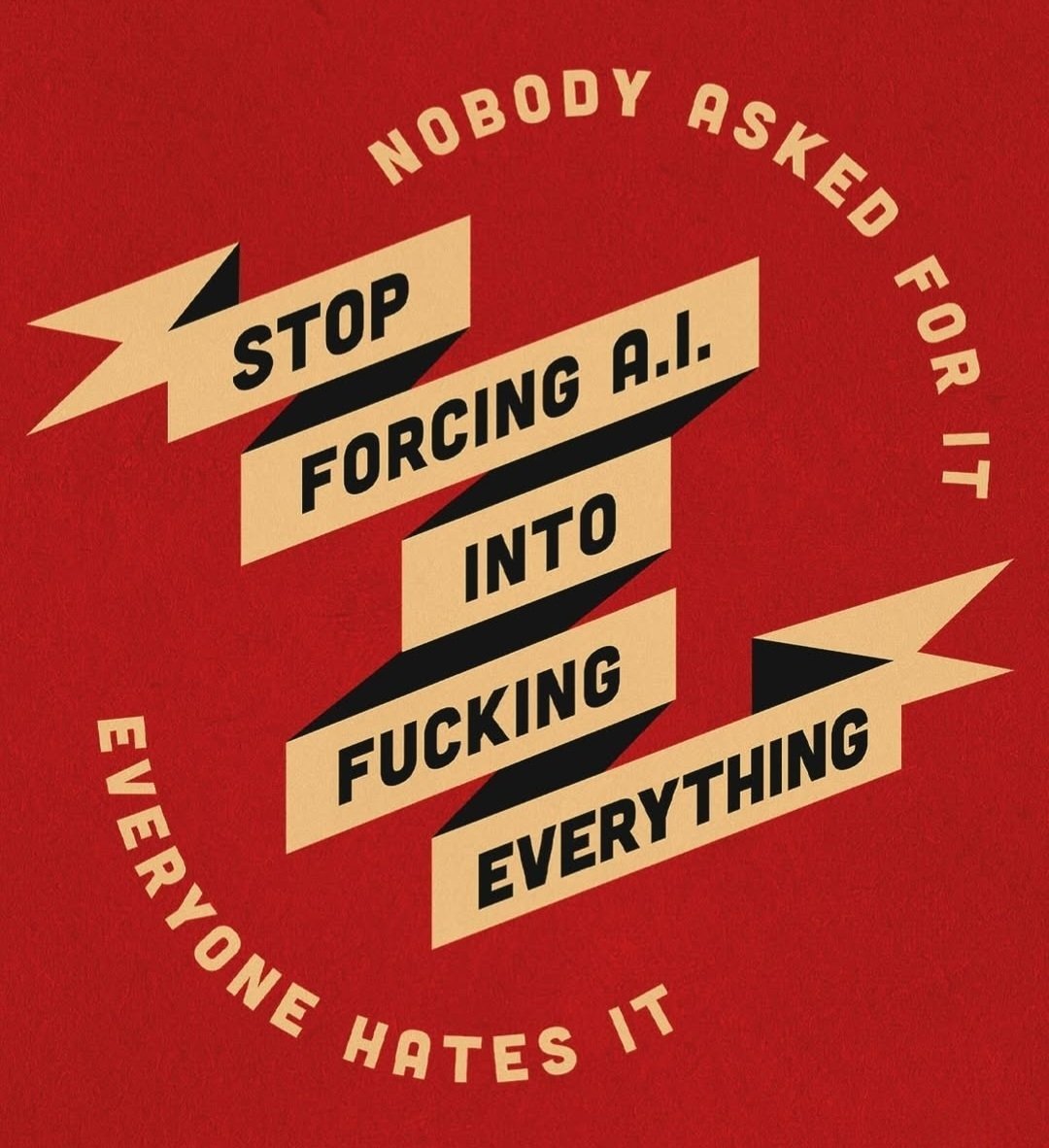this post was submitted on 30 Dec 2024
1547 points (97.1% liked)
memes
10944 readers
3858 users here now
Community rules
1. Be civil
No trolling, bigotry or other insulting / annoying behaviour
2. No politics
This is non-politics community. For political memes please go to [email protected]
3. No recent reposts
Check for reposts when posting a meme, you can only repost after 1 month
4. No bots
No bots without the express approval of the mods or the admins
5. No Spam/Ads
No advertisements or spam. This is an instance rule and the only way to live.
Sister communities
- [email protected] : Star Trek memes, chat and shitposts
- [email protected] : Lemmy Shitposts, anything and everything goes.
- [email protected] : Linux themed memes
- [email protected] : for those who love comic stories.
founded 2 years ago
MODERATORS
you are viewing a single comment's thread
view the rest of the comments
view the rest of the comments

Containerize everything!
Crypto everything!
NFT everything!
Metaverse everything!
This too shall pass.
Docker: 😢
Docker is only useful in that many scenarios. Nowadays people make basic binaries like
tarinto a container, stating that it's a platform agnostic solution. Sometimes some people are just incompetent and only knowdocker pullas the only solution.Docker have many benefits - container meaning it can be more secure, easy to update and something that many overlook - a dockerfile with detailed intrusions on how to install that actually works if the container works - useful when wiki is not updated.
Another benefit is that the application owner can change infrastructure used without the user actually need to care. Example - Pihole v5 is backend dns + lighthttp for web + php in one single container. In version v6(beta) they have removed lighthttp and php and built in functionality into the core service. In my tests it went from 100 MB ram usage to 20 MB. They also changed the base from debian to alpine and the image size shrink a lot.
Next benefit - I am moving from x86 to arm for my home server. Docker itself will figure out what is the right architecture and pull that image.
Sure - Ansible exist as one attempt to combat the problem of installation instructions but is not as popular and thus the community is smaller. They may leave you in a bad state(it is not like containers were you can delete and start over fresh easily) Then we have VM:s - but IMO they waste to many resources.
LXC -- natively containerize an application (or multiple)
systemd-run -- can natively limit CPU shares and RAM usage
What's wrong with containers?
I think the complaint is that apps are being designed with containerization in mind when they don't need it
Any examples spring to mind? I've built apps that are only distributed as containers (because for their specific purpose it made sense and I am also the operator of the service), but if ya don't want to run it in a container... just follow the Dockerfile's "instructions" to package the app yourself? I'm sure I could come up with a contrived example where that would be impractical, but in almost every case a container app is just a basic install script written for a standard distro and therefore easily translatable to something else.
FOSS developers don't owe you a pre-packaged
.deb. If you think distributing one would be useful, read up on debhelper. But as someone who's done both,Dockerfileis certainly much easier thandebhelper. So "don't need it" is a statement that only favors native packaging from the user's perspective, not the maintainer. Can't really fault a FOSS developer for doing the bare minimum when packaging an app.also! it's worth noting that not all FOSS developers are debian (or even linux) devs. Developers of open source projects including .Net Core don't "owe" us packaging of any kind but the topic here is unnecessary containerization, not a social contract to provide it.
I am not the person who posted the original comment so this is speculation, but when they criticized "containerizing everything" I suspect they meant "Yes client, I can build that app for you, and even though your app doesn't need it I'm going to spend additional time containerizing it so that I can bill you more" but again you'd have to ask them.
Does "doesn't need it" mean "wouldn't be improved by it"? Examples?
"Yes, client! I can build that app for you! I'm going to bill you these extra items for containerization so I can get paid more"
Not sure about that hot take. Containers are here for the long run.
Put a curved screen on everything, microwave your thanksgiving turkey, put EVERYTHING including hot dogs, ham, and olives in gelatin. Only useful things will have AI in them in the future and I have a hard time convincing the hardcore anti-ai crowd of that.
Don't forget microservices!